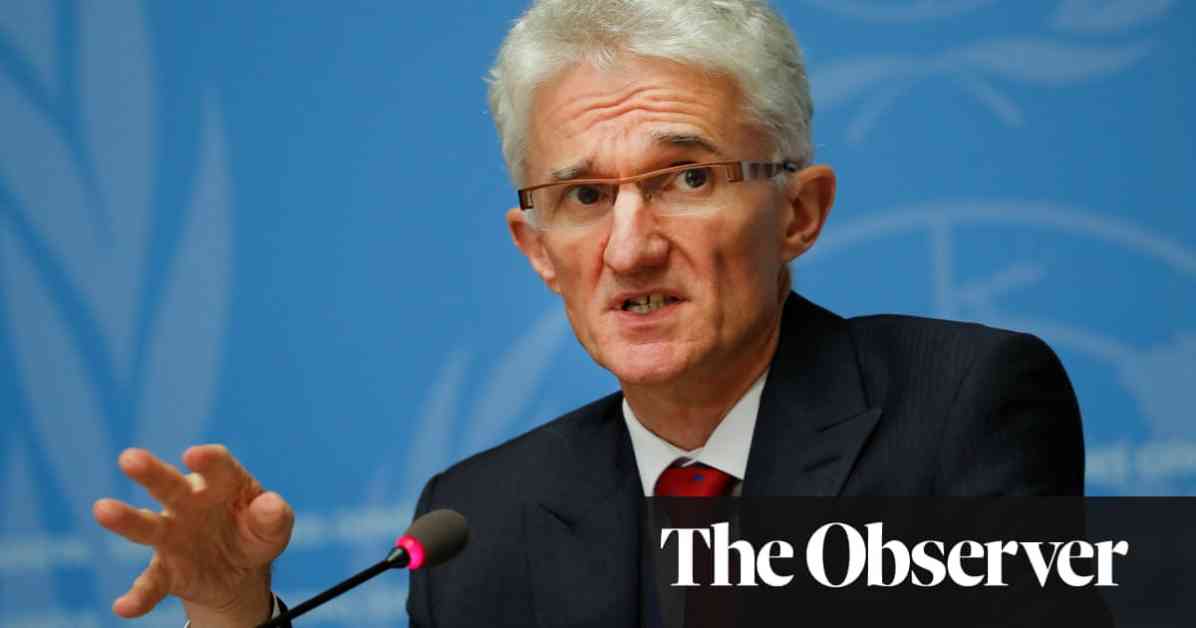Ex-Aid Chief Raises Concerns Over £4bn Tory Asylum Contracts: Potential for Scam and Scandal
The oversight and management of the billions of pounds spent on housing asylum seekers in the UK have come under scrutiny for the potential “scam and scandal” that could be prevalent in the contracts awarded during the Covid pandemic. Sir Mark Lowcock, the former most senior civil servant in the Department for International Development (DfID), has raised alarm over the lack of proper oversight of the £4.3bn allocated annually for asylum seekers in the UK. This lack of supervision has created a breeding ground for potential misuse of funds and unethical practices.
Expanding Concerns Over Aid Spending
With the merger of the DfID into the Foreign, Commonwealth and Development Office (FCDO) in 2020, concerns have been raised about the decline in spending controls on aid. The rapid expansion of spending on refugees within the UK has exacerbated these worries. Lowcock emphasized the urgent need for an investigation into the spending on housing asylum seekers and wider aid projects. The drastic increase from £500m to £4bn in a short period has triggered concerns about the transparency and accountability of these expenditures.
Raising Red Flags on Oversight
The Foreign Office’s internal auditors have reportedly flagged numerous core systems that are either inadequate or being disregarded, highlighting the concerning lack of oversight in the allocation of funds. Lowcock’s experience in international aid has led him to compare the current situation to the corrupt practices witnessed during the Covid pandemic. The hasty distribution of funds without proper controls or assessments raises significant red flags for him, signaling a potential for misuse and exploitation of the system.
Demand for Independent Audit
Lowcock stressed the importance of conducting an urgent independent forensic audit to scrutinize the allocation of the £4bn annual budget for asylum seekers. He expressed concerns about individuals or entities profiting from this massive increase in funds without proper accountability. The call for a thorough investigation into the spending practices aims to ensure transparency, prevent corruption, and safeguard the effective use of taxpayer money in supporting asylum seekers.
Challenges in Monitoring Aid Spending
Transparency International UK’s study revealed corruption “red flags” in government Covid contracts worth over £15bn, underscoring the need for robust oversight mechanisms in expenditure. The lack of technical expertise and training among management staff responsible for overseeing large-scale investments further exacerbates the challenges in monitoring aid spending effectively. Lowcock and Ranil Dissanayake’s collaboration on documenting the state of UK aid spending sheds light on the systemic issues plaguing the oversight and management of funds allocated for humanitarian purposes.
Addressing Structural Deficiencies
The decision to merge the DfID into the FCDO in 2020 has been criticized for dismantling essential structures, skills, and accountability systems essential for effective aid spending. The restructuring has compromised the department’s ability to allocate resources efficiently and achieve desired development outcomes. The shift in focus from poverty alleviation to refugee support has also strained the capacity of the system to oversee and monitor aid spending adequately.
Proposals for Reform
Lowcock and Dissanayake advocate for a comprehensive review of the government’s approach to international development to address the deficiencies in aid spending and monitoring. They caution against injecting more funds into a system ill-equipped to manage them effectively and stress the importance of strengthening capabilities before expanding budget allocations. The need for a centralized management system for the aid budget, akin to the pre-2010 structure, is highlighted as a crucial step towards improving accountability and transparency in aid spending.
Government Response and Future Plans
In response to mounting concerns, the government has initiated strategic reviews aimed at enhancing the UK’s global impact, strengthening economic diplomacy, and modernizing the approach to international development. The ongoing international development review seeks to maximize the impact of the FCDO’s integrated development and diplomacy model and improve development capability and assurance within the department. These initiatives reflect a commitment to addressing the systemic challenges in aid spending and ensuring the effective utilization of resources for humanitarian purposes.












